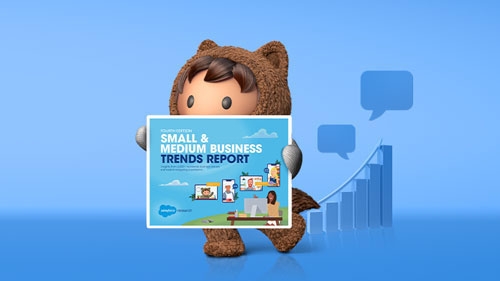If we were to describe a small and medium-sized business (SMB) owner’s life using a movie title, we’d say: Everything Everywhere All at Once. Running a small business requires wearing a dozen hats daily, but a sole proprietorship reduces the complexity. If you’re planning to start a small business, find out if a sole proprietorship is right for you.
What you’ll learn:
- What is a sole proprietorship?
- Understanding the advantages of a sole proprietorship
- How to know if a sole proprietorship is right for your business
- Top 8 advantages of a sole proprietorship
- FAQs on sole proprietorships
What is a sole proprietorship?
If a business is owned and operated by a single individual, it’s a sole proprietorship. It’s as simple as that. If you’re a small business owner managing finances, speaking to customers, making decisions, and handling operations independently, you’re a sole proprietor. The most common type of sole proprietor is a freelancer or independent contractor. However, franchise or business owners with no partners can also establish a sole proprietorship after obtaining the necessary permits and licenses.
Did you know most small businesses start as sole proprietorships? Research shows that over 80% of small businesses in the U.S. are solo businesses. Many SMB owners are proving that going solo is the new corner office.
You can set up a sole proprietorship without registration, but you shoulder business liabilities and debts. Your responsibilities as a sole proprietor usually involve:
- Business management: From day-to-day operations to long-term strategy, you’re in charge of steering your company’s direction.
- Finance management: You’re responsible for every penny that flows in and out, so tracking daily expenses, ensuring a healthy cash flow, and settling debts are crucial.
- Marketing and sales: Whether it’s designing promotional campaigns or retaining and acquiring customers, you’ll act as both the marketer and salesperson to keep your business growing.
- Compliance management: You should ensure your business meets industry-specific safety standards and compliances, follows local zoning laws and regulations, and maintains accurate business records and tax returns.
- Risk management: You should protect your business and personal assets through insurance, solid contracts, and careful planning for a rainy day and business continuity.
Start with SMB Basics
Understanding the advantages of sole proprietorship
Freedom comes with responsibilities. Since your business and personal assets are interlinked, you should carefully monitor your business’s legal, financial, and operational duties. Of all the business structures available to a small business owner in the U.S., a sole proprietorship gives the most flexibility. It involves no complex legal or financial setups, making it seamless to launch your business with minimal paperwork.
But is a sole proprietorship for everyone? Not really — and you should weigh the pros and cons before taking the plunge.
How to know if a sole proprietorship is right for your business
A sole proprietorship might be a good fit if you want complete control and flexibility to run your business. Do you want to test your products or offerings before introducing them to wider audiences and markets? This business structure will let you validate and pivot your offerings without the restrictions of a formal entity.
However, it’s not ideal if you plan to seek external funding or hire full-time employees in the future. You also become the face and voice of your brand — and you can’t keep your personal assets and life separate from your business. Assess your risk tolerance, growth trajectory, future funding needs, and opportunities to determine if a sole proprietorship is right for you.
Top 8 advantages of a sole proprietorship
A sole proprietorship is a simple, cost-efficient way to start and run a small business. It offers flexibility to change the business model, scale up or down, or shut down operations if needed. Here are some advantages to consider if you’re going to be a sole proprietor:
1. It’s straightforward to get started
Setting up your business under a sole proprietorship typically requires these steps:
- Streamlined setup: Once you’ve decided on a business name and if it’s available for use, you can start operating your business using your legal name without incorporation.
- Fill out the required forms: Next, you can fill out applicable forms, including income tax, self-employment tax, or federal unemployment tax (FUTA) based on the nature of your business.
- Register your business: Apply for an Employer Identification Number (EIN) if you plan to hire any full-time employees or file tax returns (for alcohol, excise, or tobacco). You can find out if you require an EIN based on your industry.
2. Tax simplicity
Filing taxes can be confusing, but the concept of “pass-through taxation” in sole proprietorships makes it manageable. You can avoid the complexity of filing a separate business tax return as your business’s income and deductions appear on your personal tax returns. Plus, you can take advantage of the Qualified Business Income Deduction (QBI) as it offers more deductions and credits for individual taxpayers.
3. Complete ownership
A sole proprietorship gives you complete control over your business. Every decision is yours to make without anyone’s approval. This freedom allows you to make faster decisions and remain flexible throughout your operations. It’s a boon if you’re in a dynamic or evolving industry, because you can adapt to market trends fast. While you get to keep all the profits, remember that you’re also responsible for any debts or losses, as there’s no separation between personal and business assets.
4. Low setup costs
A sole proprietorship requires minimal paperwork and no legal consultation, so it feels light on the pocket. Unlike corporations or limited liability companies (LLCs), you don’t have to file formation documents, pay state filing fees, or require an administrative structure. You can often launch your business with a small upfront capital and avoid the recurring costs associated with complex entities.
As the only team member, you can be frugal and mindful of your business expenses. However, consider investing in the right tech and automation tools so you can focus on the big picture.
5. Operational flexibility
Making quick decisions without waiting for other business partners or a board gives you speed, flexibility, and autonomy. You know what’s best for your business and can set your work hours, processes, and location while maintaining control over your services or products. As market conditions and your customer needs evolve, you can pivot your business model and adapt without significant upheavals.
6. Profit retention
Thanks to the pass-through taxation structure, you can retain all your profits. You can reinvest your profits into the business as you don’t have to share your earnings with partners or shareholders. If we’re talking profit and you’re scaling, consider growing your inventory, hiring freelancers, or investing in artificial intelligence (AI) tools like Agentforce for automating mundane tasks.
Our research shows that nine in ten SMB marketing teams use AI to speed up customer interactions, automate internal workflows, and it’s making a huge difference to their ROI.
7. Streamlined compliances
Compared to other business structures, you face fewer regulatory and compliance requirements. You don’t have to hold board meetings or go through elaborate corporate records or structures involving financial audits, legal, governance, and taxation. Because of this simplicity, you can focus on what truly matters — running and growing your business.
8. Connection with customers
There’s a reason your neighborhood ramen shop remembers how you like your broth. As a small business owner, you can build long-lasting relationships with your customers and tailor your products to their tastes. Unlike enterprises or other business structures, your feedback cycle is short, and you can implement changes in a blink. This is where customer relationship management (CRM) tools come in handy. A CRM for small business helps you deliver better and more personalized services for your customers. Plus, it gives you the autonomy and simplicity you desire.
Starter Suite is built for small and growing businesses like yours. It’s an easy to use suite that offers sales, marketing, digital storefronts, and customer service tools to get you started quickly.
Take your business to the next level
Get started with Starter Suite — the all-in-one suite with the marketing, sales, service, and commerce tools you need to succeed. Get the power of the world’s #1 CRM in a simplified, easy-to-use suite built for growing businesses.



Sole proprietorship gives SMBs flexibility, freedom, and growth
Being a sole founder is exciting as you get to call the shots, build from the ground up without breaking the bank, and avoid the mammoth paperwork other business structures face. The streamlined structure of a sole proprietorship puts your business in a sweet spot for faster growth. While it can be unnerving, owing to the bazillion things you do alone — we’re here to help you. With Starter Suite, you have everything you need for your business to grow. Pro tip? You can try it out for free.
FAQs
- Can you hire employees under sole proprietorship?
You can hire employees after requesting an Employer Identification Number (EIN) from the Internal Revenue Service (IRS). - Can a sole proprietor change its business structure?
As your business evolves, you can change your business structure. For instance, if you seek new partners or funding in the future or want to protect your liabilities or assets, you can change your business structure. Usually, this process requires filing new documents for formation, getting a new EIN, transferring licenses and permits, and updating contracts and business relationships. We recommend checking for requirements based on your state’s structures. - Can a sole proprietor use a business name different from their legal name?
Yes, you can register as Doing Business As (DBA) or with a fictitious business name to use a business name other than your legal name. - Should a sole proprietor register for an EIN?
You can use your Social Security Number to run your business, but you need an EIN to hire full-time employees. - What business expenses are tax-deductible for sole proprietorships?
Business expenses like office rent, utilities, travel, marketing, and professional services are tax deductible. Don’t forget to maintain detailed records and receipts you want to declare for tax returns.


































